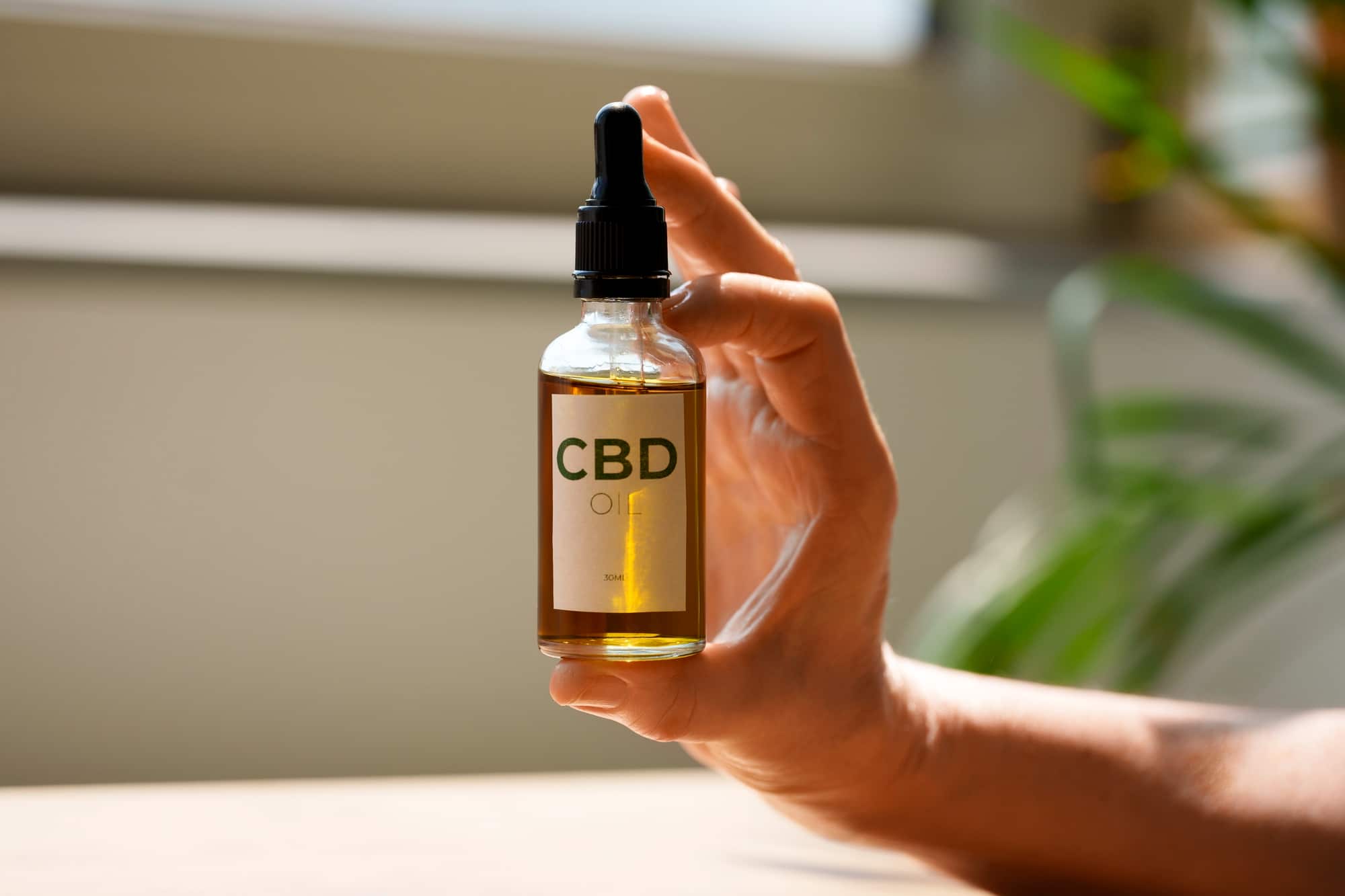
CBD oil is increasingly popular in the field of health and well-being. Its benefits, supported by scientific studies, position it as an interesting option for various ailments, including anxiety, chronic pain, and even certain forms of epilepsy. However, despite its promising potential, it is essential to understand that research on CBD is still ongoing, and its effects may vary from person to person. Here's a look at the top nine benefits of CBD oil , along with potential side effects to consider.
1. Relief from anxiety and depression
One of the most popular effects of CBD is its ability to reduce anxiety. A 2017 study, published in the Brazilian Journal of Psychiatry , found that 300 mg of CBD administered before a public speaking simulation significantly reduced anxiety levels in participants. However, the same study showed that lower (150 mg) or higher (600 mg) doses did not have the same effects, proving that the optimal dose may vary among individuals.
Additionally, a study in mice showed that CBD may have antidepressant effects similar to those of imipramine, a common antidepressant. That being said, additional studies are needed to confirm these effects in humans.
2. Treatment of certain epileptic syndromes
In 2018, the Food and Drug Administration (FDA) approved the use of CBD under the brand name Epidiolex to treat two rare and severe forms of epilepsy: Lennox-Gastaut syndrome and Dravet syndrome. This approval was based on three rigorous clinical studies that demonstrated that Epidiolex significantly reduced the frequency of seizures in patients compared to a placebo.
Although these results are encouraging, it is important to note that this type of treatment should be supervised by a doctor, especially when combined with other medications.
3. Reduced symptoms of post-traumatic stress (PTS)
CBD also shows promise in treating symptoms of post-traumatic stress (PTSD). A small 2018 study showed that 10 of 11 participants who took CBD in combination with standard psychiatric care saw a decrease in their PTS symptoms. However, researchers emphasize that CBD should be used as a complement to more traditional therapies.
Studies also indicate that CBD works even better when combined with THC, creating what is known as the “entourage effect,” where the two compounds enhance each other’s benefits. This means that a low dose of THC with a higher amount of CBD could be more effective in treating stress-related disorders.
4. Help Treat Opioid Addiction
Some studies suggest that CBD could be an ally in the treatment of opioid addiction. One study found that CBD could reduce heroin cravings and withdrawal symptoms in addicted patients without causing serious side effects.
Additionally, it has been found that CBD may also help relieve some psychiatric and physical symptoms related to drug addiction, such as anxiety, insomnia, and pain.
5. Symptom relief for amyotrophic lateral sclerosis (ALS)
Amyotrophic lateral sclerosis (ALS) is a neurodegenerative disease that leads to a progressive loss of muscle control. Research on CBD, in combination with THC, suggests that this combination may help relieve certain symptoms, particularly muscle spasticity.
A 2019 study found that ALS patients expressed high satisfaction with this treatment approach, including those with moderate to severe spasticity.
6. Chronic Pain Relief
Canada approved the use of Sativex, a THC and CBD spray, in 2005 to treat neuropathic pain related to multiple sclerosis. This drug was later approved for cancer-related pain in 2007.
Studies in the United States indicate that topical application of CBD may also relieve chronic pain not related to cancer. A 2020 study showed that patients with peripheral neuropathy experienced a significant reduction in severe pain and cold sensations after applying topical CBD, compared to a placebo.
7. Reduction of diabetes-related complications
CBD may also play a role in managing diabetes-related complications. Studies in human cells have shown that CBD may decrease the negative effects of high glucose levels, a key factor in the development of diabetes and its complications.
In another study, patients with type 2 diabetes who were not taking insulin saw their levels of resistin, a protein that promotes insulin resistance, decrease after taking CBD. Additionally, CBD increased the levels of peptides that promote insulin secretion.
8. Protection against neurological diseases
The antioxidant and anti-inflammatory properties of CBD could offer protection against certain neurological diseases. Preclinical studies suggest that CBD may have beneficial effects against Parkinson's disease, multiple sclerosis and even Alzheimer's disease.
However, although these results are encouraging, further clinical studies are needed to confirm the benefits of CBD in the prevention or treatment of these diseases.
9. Alleviation of arthritis symptoms
Arthritis is a degenerative disease that affects joints, causing pain and loss of mobility. A 2006 study has shown that SATIFX, a CBD -based spray, could significantly improve sleep quality and reduce pain in patients with rheumatoid arthritis.
Additionally, a more recent study conducted in 2018 showed that applying a CBD gel could alleviate osteoarthritis pain, although the results were not completely conclusive. Some patients, particularly men, showed notable improvement, while results were less marked in women.
Potential side effects of CBD oil
Although CBD oil is generally well tolerated, it can cause some side effects. Some of the most common include drowsiness, diarrhea, appetite changes, and mood swings. CBD may also interfere with certain medications, particularly those metabolized by the liver.
It is important to note that the use of CBD is not recommended for pregnant or breastfeeding women, and any consumption should be discussed with a healthcare professional.
What is the best way to consume CBD oil?
For optimal effect, it is recommended to apply CBD oil under the tongue, where it will be absorbed directly into the bloodstream. To treat chronic or inflammatory pain, topical application can be an effective alternative.
How to determine if CBD oil is right for you?
CBD oil , it is essential to consult a health professional to discuss your medical history and well-being goals. It is advisable to start with a low dose and observe the effects before gradually increased if necessary.
Conclusion
The CBD has a wide range of potential benefits, ranging from the reduction of anxiety to the management of chronic pain. However, as with any treatment, it is important to consult a healthcare professional before starting a CBD-based diet, especially if you take other drugs or if you suffer from underlying health problems.

















